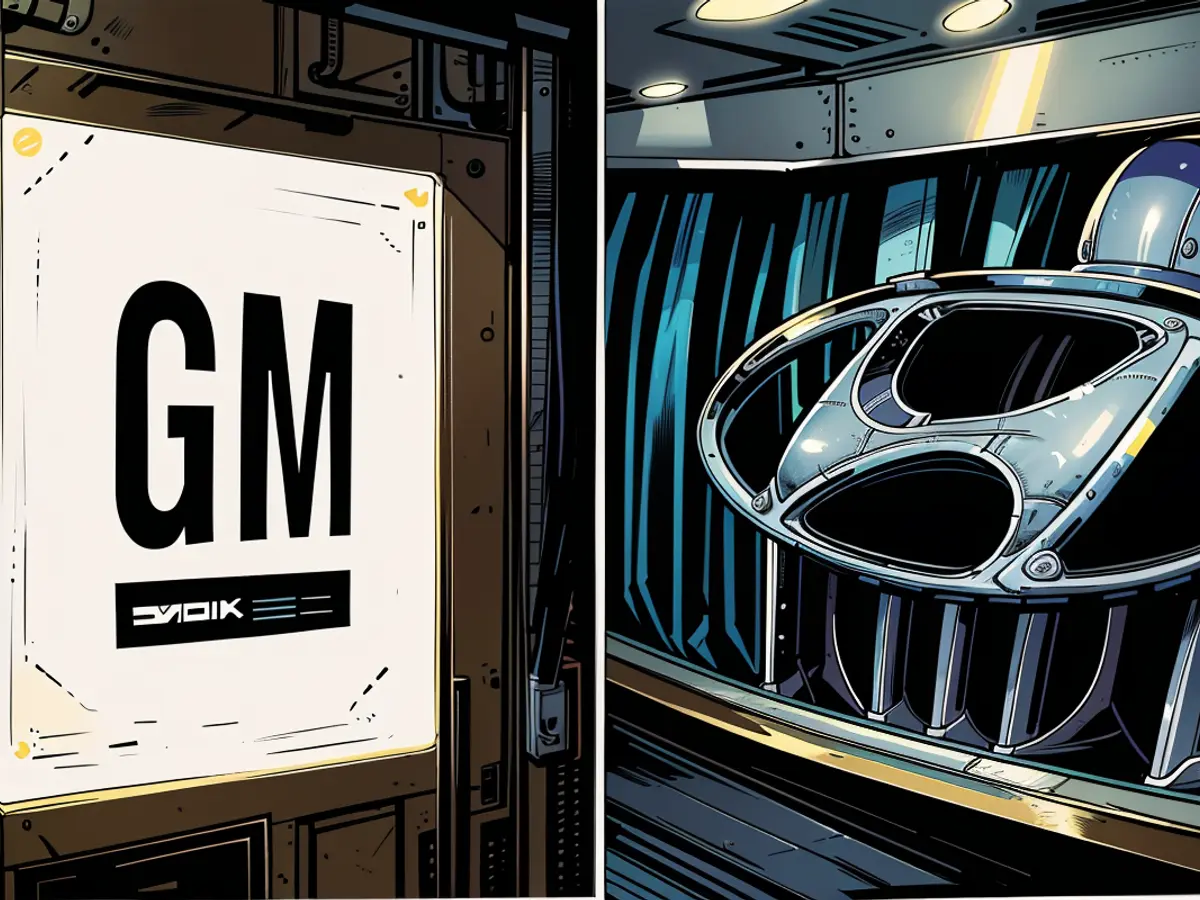Hyundai and General Motors join forces to construct novel automobiles jointly.
The automobile manufacturers are under significant stress to create innovative electric vehicles (EVs) and battery tech due to worldwide emissions regulations they need to comply with. The financial investment required for these R&D initiatives could easily reach billions.
They're simultaneously challenged by a significant threat of competition from Chinese automakers, particularly EV manufacturers, aiming to sell their low-cost models beyond their borders to overcome a substantial surplus issue within their own market.
On Thursday, Hyundai from South Korea and America's GM announced they'd collaborate on shared product development, manufacturing, and future green energy technologies. Their plans involve working together on conventional fuel, eco-friendly, electric, and hydrogen vehicles.
A non-binding agreement was signed between Hyundai Motor's Executive Chair Euisun Chung and GM's Chair and CEO Mary Barra.
"Our objective is to utilize the scale and creativity of both companies to produce even more competitive vehicles for customers at a quicker and more efficient pace," Barra stated.
Both Hyundai Motor, including its affiliate Kia, and GM hold strong positions in the global automotive industry. Hyundai is the third-largest seller of cars worldwide, as reported by Reuters, and GM retains its position as America's largest carmaker after reclaiming it from Toyota in 2022.
Chung said in the statement, "This partnership will provide Hyundai Motor and GM with the opportunity to explore methods to boost competitiveness in key markets and vehicle segments, while also achieving cost savings and offering better value to customers."
Collaborations in the automotive sector are quite common.
In 2021, Nissan and Renault finalized the details of their revamped alliance, centered on developing EVs. GM and Honda, together with Cruise - GM's autonomous vehicle subsidiary - have agreed to establish a driverless ride-hailing company in Japan.
This partnership between Hyundai and GM could potentially expand their business in the car market, offering a wider range of electric and hydrogen vehicles to customers. The financial savings and improved competitiveness from this collaboration could incentivize both companies to invest more in car R&D.








